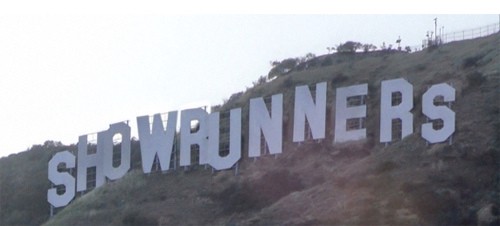Dear TV Showrunners,
I have
known many of you over the years as colleagues, bosses and friends. I know you
to be a group of professionals with the highest work ethic and a mindful
approach to your families and the issues you find socially relevant. So I can’t help but wonder, where is your social consciousness about gender equity in Hollywood?
You all have
wives, sisters and daughters — a few of you are female yourselves — and I know you want an even playing field for those you love in whatever career they
desire. In corporate America, even in American politics, the numbers of women
in positions of authority has grown tremendously. But in Hollywood, a supposed
bastion of progressive thinking, only 4.7% of the studio films are directed by
women. Though it is documented that 12% of episodic television is directed by women, when credits are examined by name, this number does not seem to represent how many different woman are directing, only the total number of episodes. By name analysis, it appears as if only about the same 15 to 20 women directors are hired again and again.
I know there are millions of dollars at stake. I know
that your actors and crew demand the highest level of professionalism. I know that when you hire a director, you want someone
who will make your job easy, and because of that you either hire guys you know, or
guys who are well known. I also know that employment equity and women’s rights are far from the top of your mind when you are in the whirlwind of production.
Showrunning is a very tough job, but hiring more women directors is not simply a labor/employment inequity that
needs to be rectified — it’s an issue that has important, global social relevance. Film and television are our culture’s most powerful
influencer and ambassador. All around the world, even in the most remote
corners of our planet, men, women and children see how Hollywood movies and
television present the human condition. Our media is a great proselytizer, and
we have a tremendous responsibility to ensure that the images and ideas we
disseminate represent the most enlightened aspects of culture and are not
created with a single-gender perspective.
The Geena Davis Institute on Gender and Media has published
studies finding that, when woman create media, stereotyping is radically reduced and more female characters appear
onscreen. Women directors often cast
females in roles that had been written for men; tone down hyper-sexualized
wardrobe, gratuitous nudity, and on-screen violence; and populate background
talent with equal genders. These sensibilities don’t make us better or worse as directors, but show that there are varied perspectives.
I was delighted when ABC Network and Studios recently held an
event with the goal of introducing current production executives to experienced
female directors with whom they were not already familiar. ABC consulted with
the DGA and made a step forward in acknowledging they need to do
better in hiring women directors. It was a much appreciated endeavor and a
lovely evening. However, the executives admitted that their
approvals were of little use since showrunners, who did not attend this event,
are the single most significant element in hiring.
The primary reason showrunners and executives cite for not hiring more women is that they don’t know any. As former co-chair of the DGA Women’s Steering Committee, I’m delighted to tell you that
there are over 1,200 experienced, accomplished, female director members waiting
to be hired. Will you have to move out of your comfort zone
to find them? Yes. But this is a job worth doing.
Your
list of women directors will probably not come from agents (unless you want the
same 20 directors who are already directing all the time) since the vast
majority of women directors sadly do not have the benefit of representation. You will
have to check out festivals, or even train the talented filmmakers who are already
on your team as editors, A.D.s, or script supervisors. Or even easier, reach
out to the Guild to be introduced to any number of talented, mid-career women
directors with decades of credits.
Talent doesn’t dry up. Only opportunities
do.
Of
course, the feature film world is even worse. With only 4.7% of our studio features
directed by women, the same excuse for not knowing any women directors is given by
studio heads every day. Having top
agents and prior box-office mojo is no guarantee of who will successfully
direct your next picture. The trail to great women directors will not be uncovered by conventional
means, but through the route of discovery.
A friend
of mine, who is a prominent attorney in town, told me that when he organizes
panels for the American Bar Association, he is mandated to enlist a diverse
panel of experts. And while it sometimes requires a bit of a search, he and his profession recognize the importance of doing so. Each and every time he discovers new people, the panels are enriched in
ways he had never anticipated.
The
television showrunning community has a great opportunity to be the leader for
women. With over 3,300 episodes of television being made each year in Hollywood,
YOU have the power to make real change for girls and women around the world. Film
schools are filled with female students. Let’s not doom another
generation of promising young women.
Rachel Feldman is
a director and screenwriter. She is currently in development on The Good Years, a
feature film based on the life of Lilly Ledbetter with Mandalay Pictures. Rachel has
directed series television and Movies of the Week for ABC, CBS,
NBC, FOX, CW, FOX, HBO, Lifetime, Disney Channel, Teen Nick, and SyFy.
She teaches directing at Loyola Marymount University and has taught directing
and screenwriting at the University of Southern California. Rachel was a recent Co-Chair of the Directors Guild of America Women’s Steering Committee. Follow Rachel on twitter @WomenCallAction or
visit her website at www.rachelfeldman.com.







